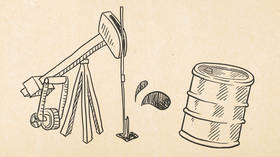Virtual OPEC+ meetings regulating a paper oil market can lead to slipping commitment and more volatility

The Organization of the Petroleum Exporting Countries (OPEC) has various mechanisms to coordinate the shaping and making of decisions among its members. The most visible of these are its ministerial meetings.
The format OPEC+ was launched in late 2016 to allow for a broader and thereby more efficient approach that would include important non-OPEC producers, such as the Russian Federation. These joint meetings take place at a number of technical and political levels, and used to be held twice a year at OPEC’s Vienna headquarters.
In the past, the ministerial meetings were held in the spring, before the start of what was known as the ‘driving season’, and in the fall, before the ‘heating season’ was resumed. But these intervals have long since gone, for many reasons. The futures market for crude oil, the so-called paper oil market, is one of them. Not only did the physical oil market disappear some time ago, but in-person meetings have fallen victim to travel bans since the start of the Covid-19 pandemic.
Video talks have replaced face-to-face meetings and long, drawn-out negotiations. Talking to each other via a screen has proven to be more convenient and allows for more ad hoc arrangements. Last Friday, there was a virtual meeting of OPEC’s technical committee. It usually sorts out the major market elements for follow-up at the subsequent ministerial council, but it decided to do that the next day, meaning the original schedule could be shortened by five days.
Also on rt.com Nord Stream 2: Geopolitics, economics or emotions?Why is this worth deliberation? Well, flexibility is a virtue, and it proves even more helpful in complex times. Nonetheless, this new holding of spontaneous video conferences also carries a risk: the loosening of commitment. The current quota reduction by the 13 OPEC members and 10 non-OPEC producers has been prolonged for another month, until the end of July, meaning another video conference will be needed. These may therefore be held on a monthly basis istead, so compliance can be revised and checked at even shorter intervals. All that might prove useful in making decision-making more efficient.
On the other hand, this sort of decision-making will not help to ease uncertainty. There are occasions in business that need predictability and commitment for a longer time than just the next few weeks. The next joint ministerial monitoring committee is to meet via video screen on June 18, in order to revise the data once again. Very short intervals are set to determine a paper oil market in an increasingly virtual world. And, in my view, this may well lead to even more volatility.
If you like this story, share it with a friend!
The statements, views and opinions expressed in this column are solely those of the author and do not necessarily represent those of RT.















